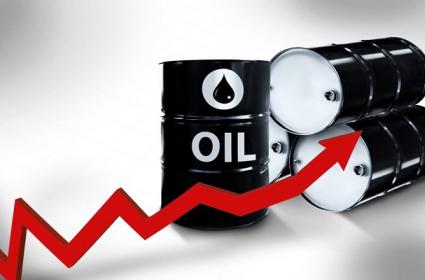Indian Gasoline And Gasoil Prices To Track Crude Oil Over The Long Term

Fitch Ratings-Mumbai/Singapore: Gasoline and Gasoil retail prices in India, and consequently the marketing margins of the oil-marketing companies (OMCs), should remain aligned with the movement in crude oil prices over the long term, notwithstanding sporadic periods of constant retail prices amidst heightened volatility in oil prices, says Fitch Ratings.
The correlation of retail fuel prices with the 15-day rolling average of crude oil prices (reference prices) has remained high at 93% since the onset of the COVID-19 pandemic in January 2020. The correlation excludes the impact on retail prices from changes in excise duties and includes periods when the Indian OMCs did not pass through the movement in oil prices immediately to consumers. The OMCs benefitted from strong marketing margins during times of low oil prices (March–June 2020) and endured margin pressure during high oil prices (November 2021–March 2022) as they tried to keep fuel prices affordable.
However, November 2021–March 2022 was one of the longest retail price freezes in recent years, despite reference crude oil prices increasing by nearly USD 27 per barrel (or INR 13 per litre) during the period, which may lead to marketing losses for the OMCs in the fourth quarter of the financial year ending March 2022 (FY22). Retail fuel prices have subsequently been raised by only around INR11, implying that further price hikes may be required for marketing margins to reach pre-November levels, and early FY23 marketing margins may also be under pressure.
If and when that happens, we believe that robust core refining margins and windfall inventory gains should mitigate potential marketing losses in the near term, and the OMCs may see opportunities to recoup some of the losses in periods of falling oil prices. We expect such instances of indirect state interference in fuel prices to be temporary, and their impact on the standalone credit profiles (SCPs) of the Indian OMCs to be neutral over the long term. However, if crude oil prices are sustained beyond Fitch’s base-case assumptions, then record-high retail fuel prices may limit the extent to which the changes are passed on, pressuring OMCs’ credit metrics.
Fitch believes that freedom on retail fuel pricing continues to remain a key area requiring clarity before the government’s proposed divestment of Bharat Petroleum Corporation Limited’s (BPCL, BBB-/Negative, SCP: bb+) can be concluded.
India (BBB-/Negative) has traditionally used its control of the OMCs to carry out its socio-political agenda, affecting the competitiveness of private fuel retailers, which at a 10% market share have limited pricing power and align their retail prices with the OMCs. We expect private fuel retailers to increase exports at better margins during times when domestic margins are under pressure. India’s export of high-speed diesel rose by 12% YoY over January-February 2022.
The Issuer Default Ratings (IDRs) of the Indian OMCs-Indian Oil Corporation Ltd. (IOC, BBB-/Negative, SCP: bb+), BPCL, and Hindustan Petroleum Corporation Limited (HPCL, BBB-/Negative)-are driven by the high likelihood of parental support, based on continued strong linkages.






















